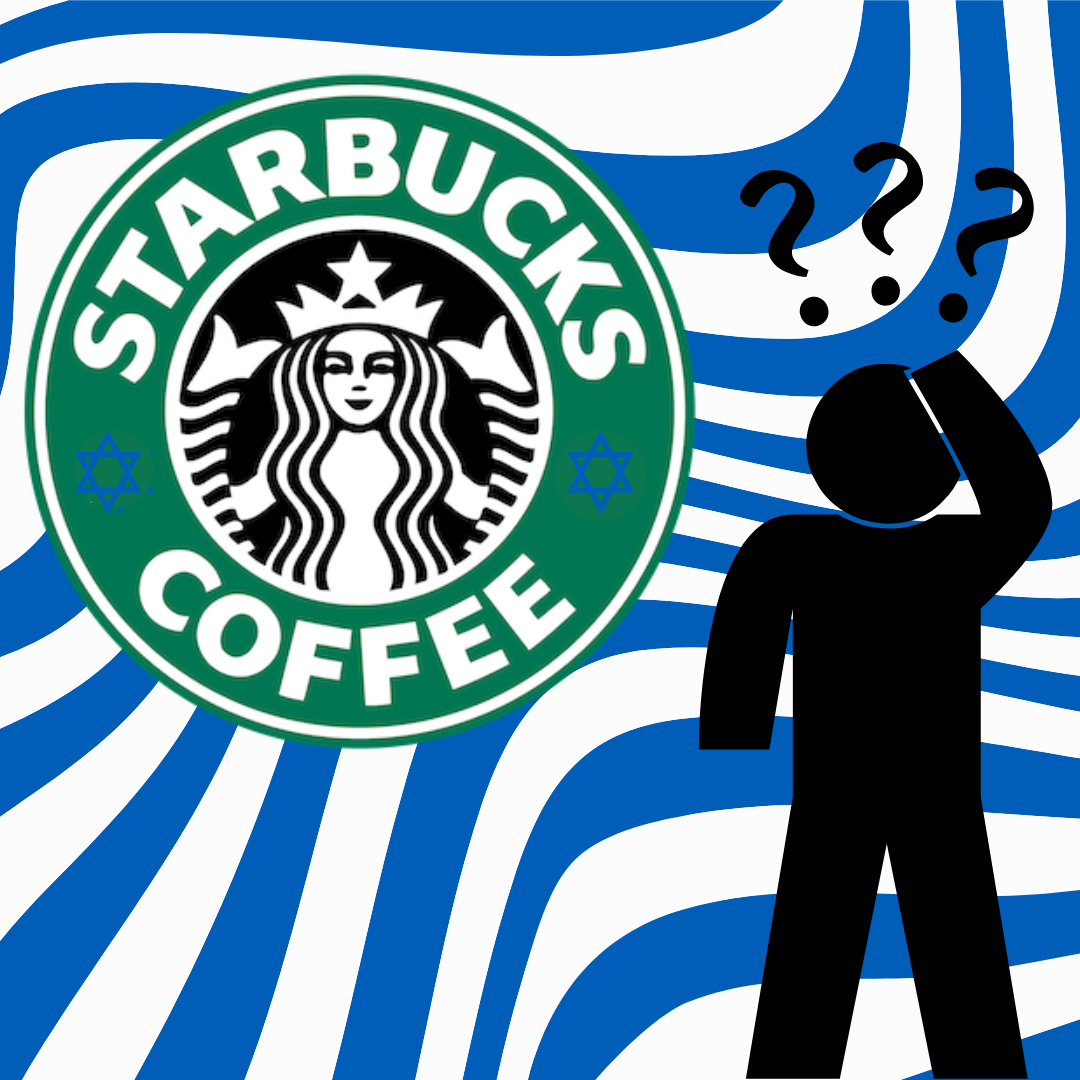The Times of India reports that the Starbucks Corporation has lost over $11 billion due to a decrease in sales and value amid a statement made in support for Israel in the ongoing war.
While Starbucks may not want to acknowledge this as the sole reason for its decline, it warrants consideration in a society where social media holds significant influence.

The Starbucks logo appears against a background featuring the colors of Israel’s flag. Instead of the typical white stars, the logo incorporates the star from Israel’s flag, symbolizing the company’s connection with Israel. A person-like figure looks curious in the scene.
The boycotts started because the union representing the companies’ baristas expressed support for Palestinians. A company of such size making such a statement had to consider the implications, whether or not the workers’ union is a separate entity.
The CEO of Starbucks believed this statement misrepresented the brand and emphasized that the workers’ union should not be seen as the company’s spokesperson.
These explanations were not given until after the backlash and vandalism ensued at multiple locations. It makes me wonder if he would have been defensive had they not received so much backlash on social media.
While some people are aware of this statement, they have chosen not to take a personal stance or join the boycott.
“Honestly, I should have participated in the boycott, but I have not. Starbucks should be boycotted for endorsing Israel which is supporting the Palestinian genocide,” said Shamiya Porter, a health science major.
Regardless of whether the union’s statement was misunderstood, it is strange for a coffee giant like Starbucks to believe that supporters would separate the union from the company.
Social media stands as one of the most influential forces in making or breaking a brand in society and Starbucks should be grateful the company was not completely erased.

































































